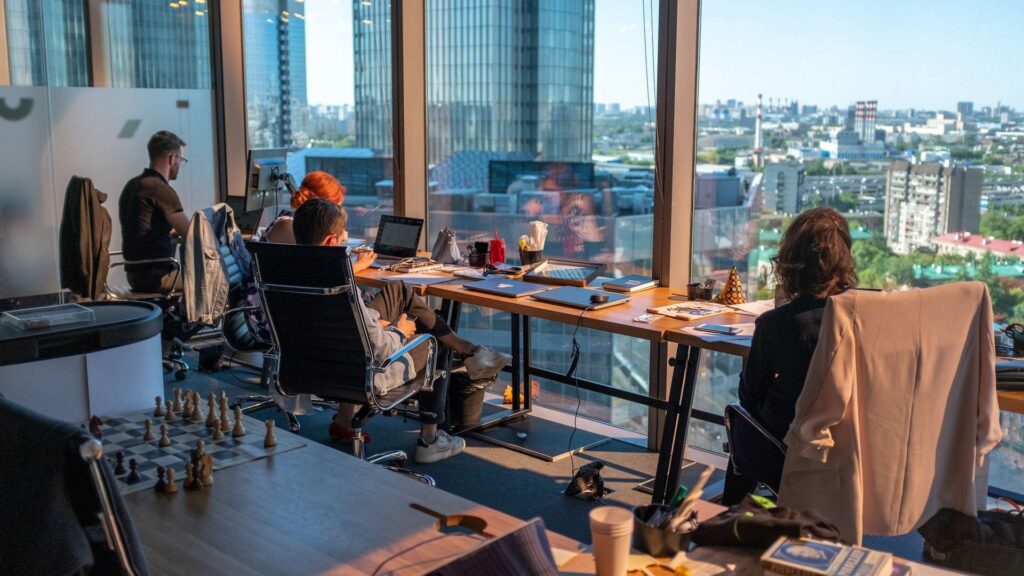Singapore Work Culture: Everything You Need to Know (2023)

Overview of the Singapore Work Culture
As one of the most attractive countries to incorporate a company and to find employment opportunities, Singapore has an estimate of 1,424,200 foreigners in its workforce as of the end of 2022 – approximately 1/3 of its entire workforce.
With so much diversity of workers, Singapore’s work culture is constantly evolving and presents a set of unique values that might be a shock to workers accustomed to employment in the West.
If this is the case for you or you are currently part of the Singaporean labor force hoping to know all the details for a successful work experience, then you have come to the right place!
Cultural Diversity
With its population consisting of Chinese (74.3%), Malays (13.5%), Indians (9%), and a mix of many other nationalities, Singapore is a melting pot of cultural diversity that drips into all aspects of life and – more specifically – into the country’s work culture.
Hence, Singapore has English, Mandarin, Malay, and Tamil as its four official languages, while English – spoken at home by 48.3% of the population – is widely recognized as the language of the educational system and the corporate world. The use of English in Singaporean companies is therefore imperative for successful business operations and effective communication
Working Hierarchical System
Respect and professionalism are a must for any kind of employment opportunity, whether in Singapore or any other country. However, more often than not, they are considered indispensable for work in Singapore.
Singaporean workers are divided into hierarchies of power where those subordinate to higher-level employees are expected to demonstrate respect in all senses. This also applies to the age divisions that are present in companies. If you were younger than another employee at the same position, you would still need to maintain a certain level of respect when exchanging your opinion.
The extent to which these moral values are taken, however, may still vary from company to company. Due to the large number of foreign employees and employers in Singapore, there is a possibility of encountering co-workers with a set of less strict values that may create a more open workplace.
Networking and Collaboration
In contrast to the individualistic work ethic that is common to gain recognition in western jobs, many Singaporean companies place great emphasis on the need for teamwork while completing the task requirements of a job. In fact, many employers in Singapore actively seek out candidates who have the ability to work well in a team and leverage the strengths of their colleagues.
As a result, you are expected to show a great sense of communication skills, to demonstrate an ability to reach agreements on team discussions, and to place genuine value on the goals of the company rather than work to attain individual achievements.
Working Hours
It’s a well-known fact that Singapore is often praised for its productivity. However, this success doesn’t come by accident. Singaporeans are known for their relentless work dedication to their jobs. They often work long hours and put in extra effort to get the job done, even if it means sacrificing their personal time. For this reason, the average annual working hours in 2022 were 44.1 per week.
The average full-time Singaporean employee is expected to – according to the Ministry of Power Employment Act – work a maximum of 44 hours/week based on the following specifications:
- Up to 9 hours/day if you work for 5 days/week or less
- Up to 8 hours/day If you work for more than 5 days/week
Additional important facts about the work requirements in Singapore companies, which are also defined by the current regulations, include the following:
- Employers are required to provide workers with a 45-minute break for meals in accordance with the Singapore Employment Act and an overall goal of attaining a work-life balance.
- Employers must pay a minimum of 1.5 times your current wage/hour for each hour of overtime work you perform.
- Employees are not allowed to work more than 12 hours/day.
- Employees are provided with at least 1 rest day/week.
These are, nonetheless, generalizations that may vary if a company has other work arrangements in place. To learn more, you can visit the official rules by the Ministry of Manpower.
3 Tips for a Successful Experience in Singapore’s Work Culture
Set Attainable Goals
It is crucial to always maintain a realistic end point for what you are looking to accomplish and what others should expect of you. Shooting for stars might seem like an excellent plan but might lead you to miserable failure. Doing the bare minimum, on the other hand, might hurt how your co-workers perceive your work ethic. Always try to reach a balance in your performance to build a strong reputation while demonstrating excellence in your work.
Demonstrate Professional Work Ethic
Aside from the aspects we have highlighted above, to make a good impression you should make sure to follow common standards of interaction such as the ones we have listed below:
- Giving a firm handshake when appropriate
- Dressing with proper attire
- Avoiding religious or political discussions
- Performing your work on time
- Respecting others’ opinions
- Refraining from chewing gum
- Demonstrating patience and politeness
Learn From Your Mistakes
All of these standards and guidelines to follow certainly mean one thing: it’s likely that sooner than later you will make a mistake interacting with others or in your work routine. But that’s part of the process. In fact, learning from them is necessary to grow as an employee. Additionally, Singaporean culture values humility and accepting responsibility, so being able to learn from mistakes and improve can demonstrate these qualities to colleagues and superiors.
Wrap Up
Singapore’s work culture can take some time to get your head around. The distinctly unique expectations and regulations that take part in the workplace make it essential to become an adaptable employee or employer so that you can keep up with the highly diverse and competitive environment that is present in Singapore.
Check out related informational topics below to learn more about working in Singapore!
